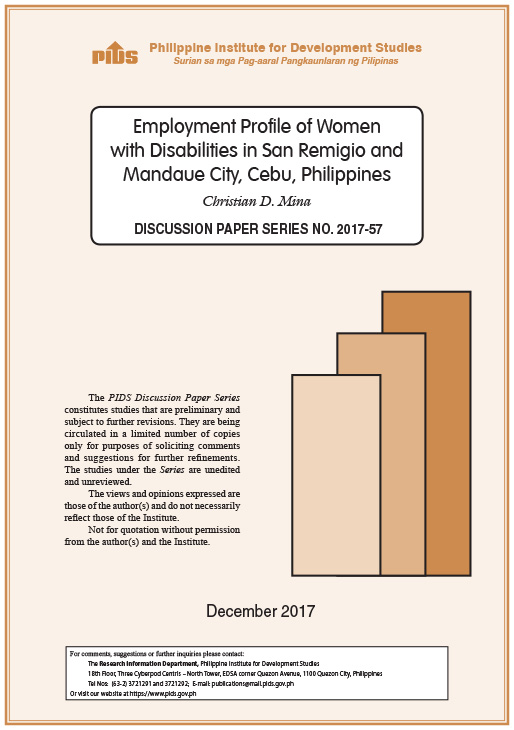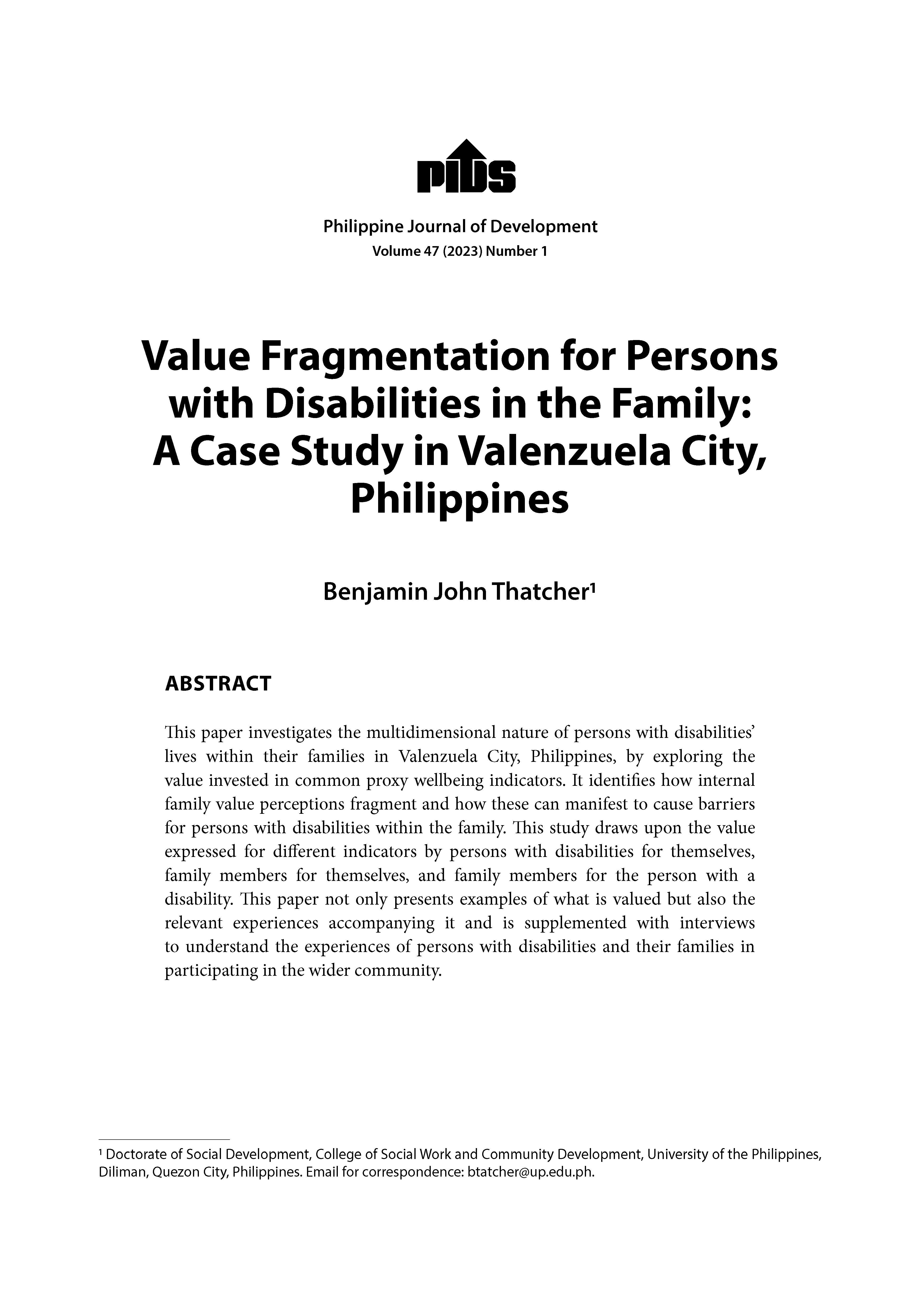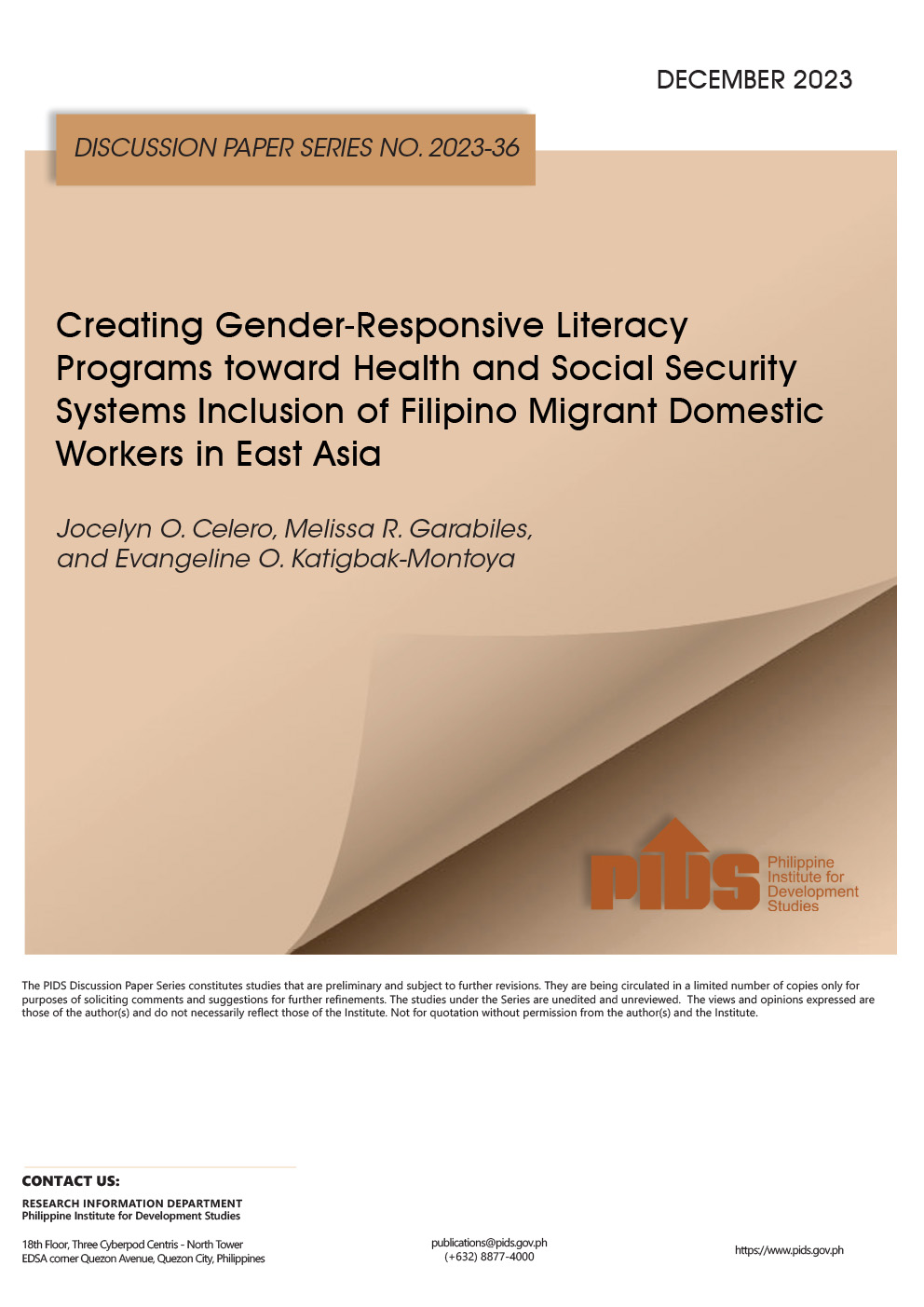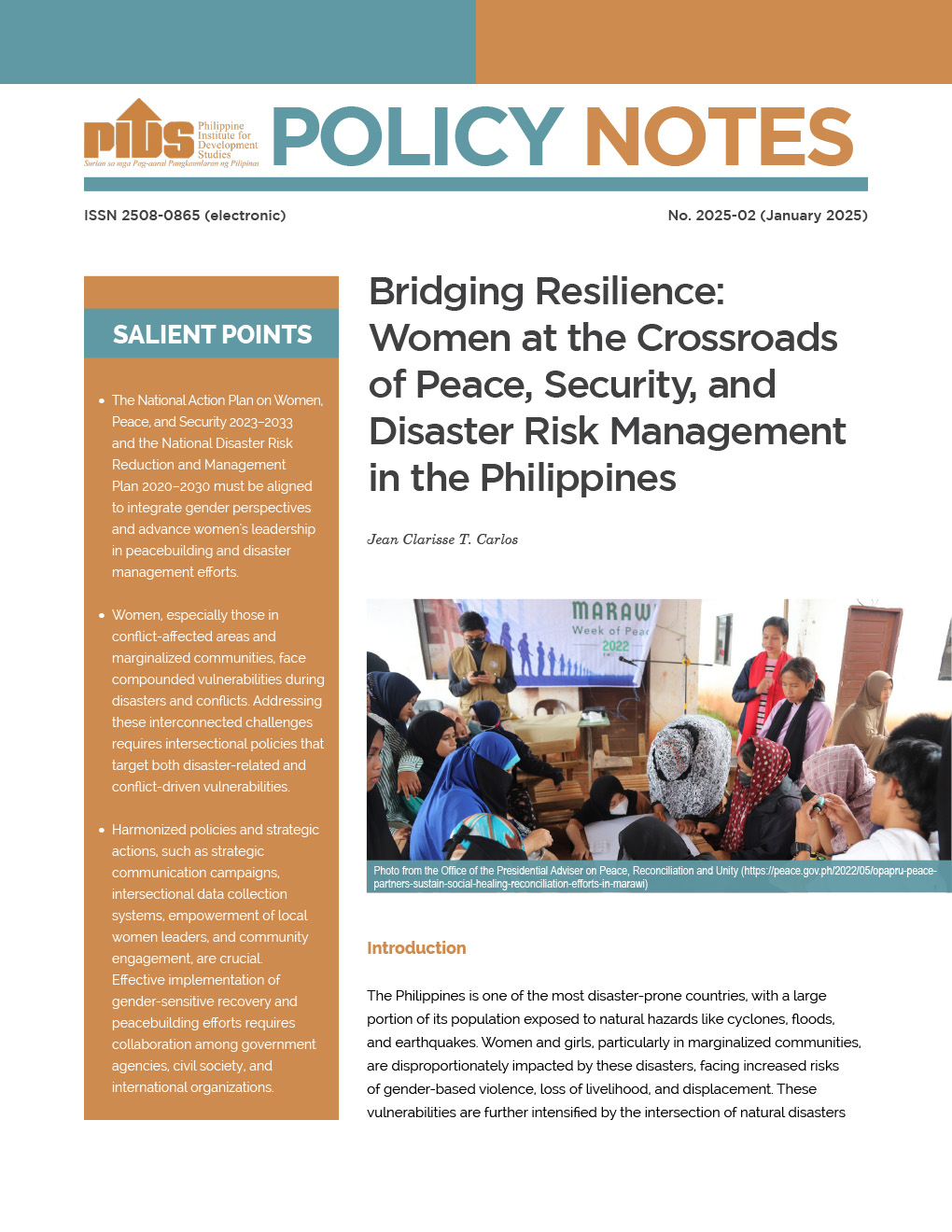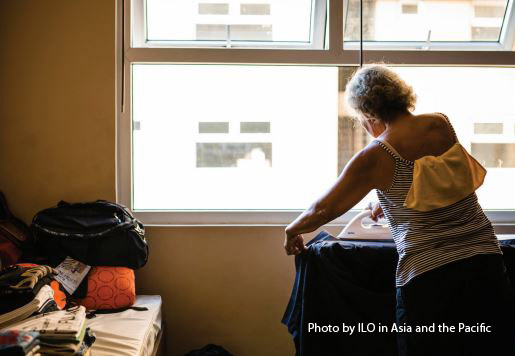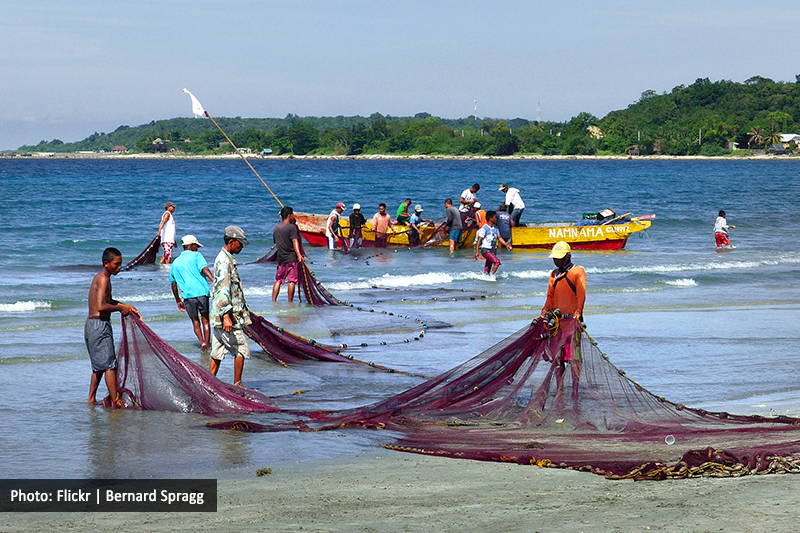Persons with disability (PWDs) in developing countries, in general, have lower employment rates, as noted in empirical studies (e.g., Eide et al. 2004; Zaidi and Burchardt 2005; Meyer and Mok 2008). PWDs who are women tend to have much lower employment outcomes. In the Philippines, not even half (36%) of the surveyed PWD women in selected cities in Metro Manila and Rosario, Batangas reported that they were engaged in an economic activity (Tabuga and Mina 2011). The most typical jobs of these few employed PWD women were house helpers, vendors, laundresses, and farmers/farm helpers.
This study, an off-shoot of the third joint project of the Philippine Institute for Development Studies and Institute of Developing Economies, looked at the employment profile of adult women with disability in San Remigio and Mandaue City in Cebu, Philippines. Using the primary data collected through survey (involving PWD enumerators) and key informant interviews with various stakeholders, the study found that both the rate and the quality of employment of PWD women in the study sites were generally low. These low employment outcomes of the respondents could be attributed to the following factors: low level of education, lack of training experience, lack of employment opportunities within a community, functioning limitations and low access to assistive devices and/or services, physical barriers and lack of PWD-friendly facilities, and low awareness on relevant policies and programs. Some of the study's recommendations include exploring ways on how to: intensify human capital investment among PWDs, entice employers to provide opportunities to PWDs, provide the necessary assistive devices/services to the needy PWDs, and make public infrastructure more PWD-friendly, among others.
Citations
This publication has been cited 1 time
- SunStar Cebu. 2018. Deals on tax, supplies may boost PWDs’ jobs. SunStar Cebu.

